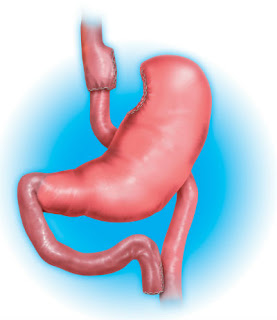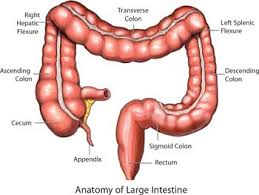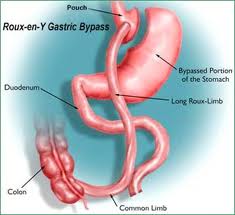For some individuals, despite intensive and longstanding attempts at shedding pounds and exhausting every possible lifestyle intervention or medical therapy, weight loss remains elusive. In some cases, weight loss surgery (called ‘bariatric’ surgery) may be the most appropriate option. Bariatric surgery has typically been reserved for the most extreme cases, but recently, the American FDA has lowered the Body Mass Index (BMI) requirements for eligibility to undergo laparascopic adjustable gastric banding (‘lap band’) surgery.
As blogged previously, bariatric surgery has traditionally been reserved for the most serious cases of obesity, defined as a Body Mass Index of 40 or greater, or, a BMI of ≥ 35 with one or more serious complication of obesity, such as diabetes, obstructive sleep apnea, or high blood pressure (you can calculate your own BMI in the right hand column here). However, because of the impressive success that bariatric surgery can have to result in weight loss and reduce complications of obesity, the FDA has lowered the required BMI for a patient with a serious complication of obesity to 30 for the lap band procedure.
However, as blogged previously, recent study suggests that lap banding may actually have a poor long term outcome. It is interesting that the FDA seems to be embracing the most extreme of obesity treatments by expanding indications for bariatric surgery, in a form that may be associated with poor long term outcomes, while simultaneously (and in some experts’ opinions, perhaps stringently) rejecting a lineup of three potential new weight loss medications in the last year.
For Canadians, the BMI criteria for bariatric surgery remain unchanged. If we were to follow our US counterparts with a broadening of the BMI criteria, it would make little practical difference in any case, as the average wait time for bariatric surgery across Canada is over half a decade. In addition, in light of recent study suggesting that lap banding may have a poor long term outcome, other types of bariatric surgery (such as gastric bypass) may be more appropriate to consider, though these other forms of surgery have a significant risk of complications as well, and long term outcomes of these procedures are not yet well known.
Dr. Sue © 2011 www.drsue.ca drsuetalks@gmail.com
Follow me on Twitter for more tips! drsuepedersen
Follow me on Facebook: drsue.ca












